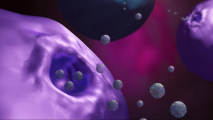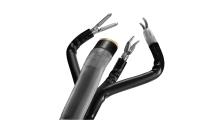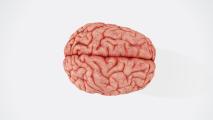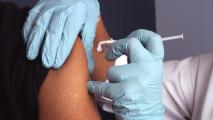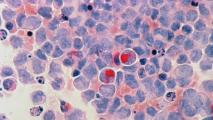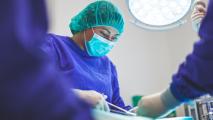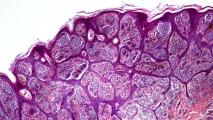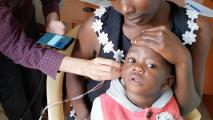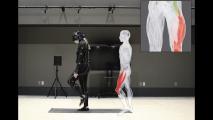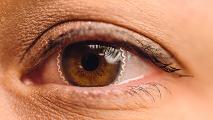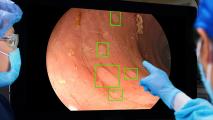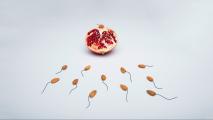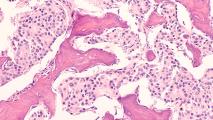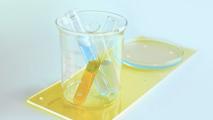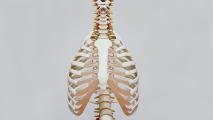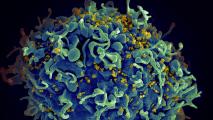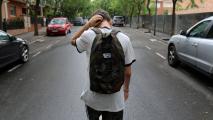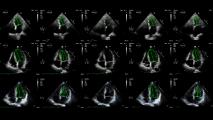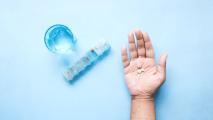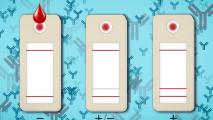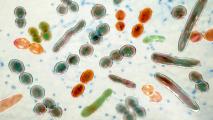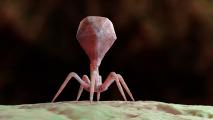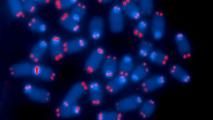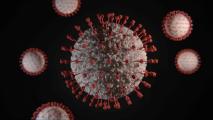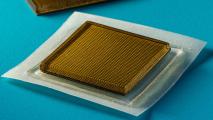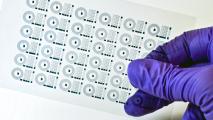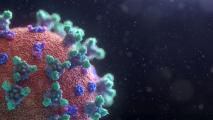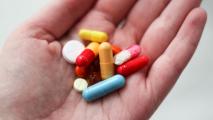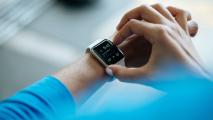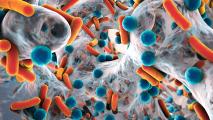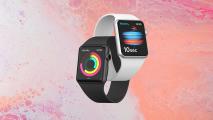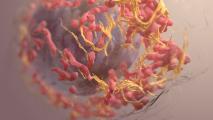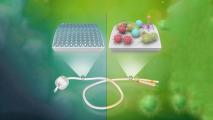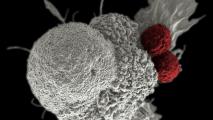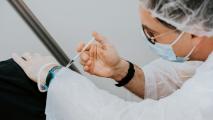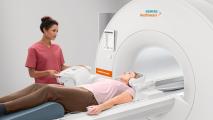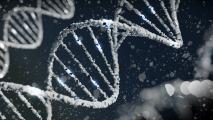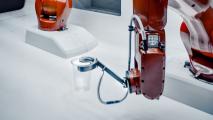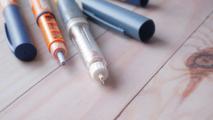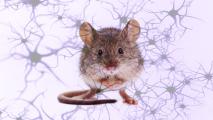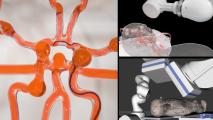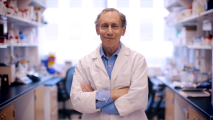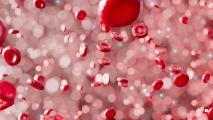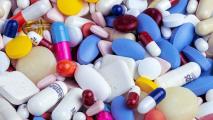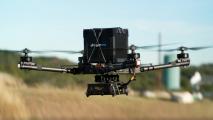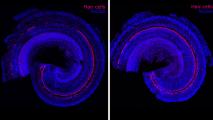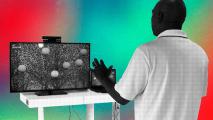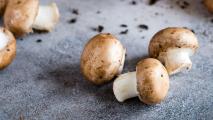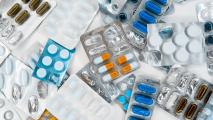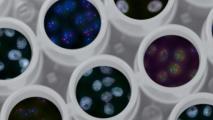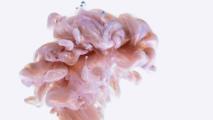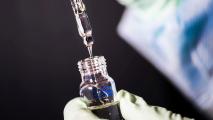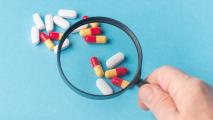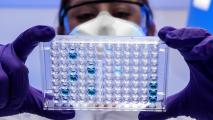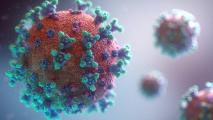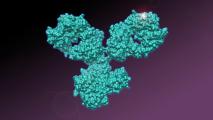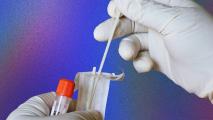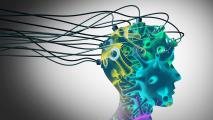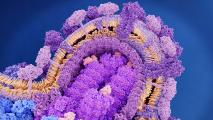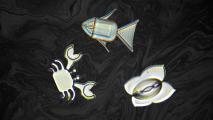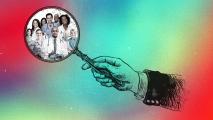Field: Healthcare
Chickenpox and shingles virus lying dormant in your neurons can reactivate and increase your risk of stroke
People with shingles have an approximately 80% higher risk of stroke than those without the disease, and researchers want to know why.
A look at innovative, single-incision procedures
In partnership with Intuitive
With a single incision, some surgeons can now accomplish just as much as they previously did with four.
How to use the brain’s own immune cells to stave off Alzheimer’s
Research suggests that microglia play a key role in preventing neurodegenerative diseases by helping to remove toxic waste.
Scientists uncover key to future hepatitis C vaccine
While treatments are available for HCV-related infections, they are expensive, hard to access, and do not protect against reinfection.
Newly discovered gut bacteria may be a culprit behind rheumatoid arthritis
This bacteria is found only in the intestines of people with rheumatoid arthritis, and not in the intestines of healthy people.
Brain implant translates neural activity into letters, letting a paralyzed man “speak”
A new device allowed a paralyzed patient to "speak," spelling out full sentences in real-time with an error rate of about 8%.
Doctors may not be ready for blood tests that screen for multiple cancers at once
MCED tests are different from existing ones because they are trying to detect early-stage cancer, when there aren’t that many tumor cells.
“Laughing gas” may offer quick, long-lasting relief from depression
With ketamine showing potential as an antidepressant, researchers investigate another anesthetic: nitrous oxide, or "laughing gas."
Organ regeneration could overcome liver failure, without a transplant
Patients wait from 30 days to over five years to receive a liver transplant in the U.S. What if the liver could regenerate itself instead?
AI could help cancer patients avoid a deadly recurrence
A new study found that AI can use a patient’s initial skin cancer growth to predict their risk of melanoma recurrence.
New exercise study could find drugs that mimic working out
MIT and Harvard researchers mapped out many of the cells, genes, and cellular pathways that are modified by exercise or high-fat diet.
These earbuds can tell if a newborn has hearing problems
A newborn hearing screening device made from off-the-shelf earbuds is as effective as expensive commercial options.
To avoid the worst effects of aging, we might need to exercise harder than we thought
To avoid one of the worst side effects of aging—bone, joint, and muscle pain—we might need to exercise a lot harder and more often.
New VR body suit lets you see inside your body while you exercise
A system for monitoring motion and muscle engagement could aid the elderly and athletes during physical rehabilitation.
New smart contact lens monitors for glaucoma 24/7
Purdue researchers have created a smart, soft contact lens that can test for eye pressure, a key indicator of glaucoma, 24 hours a day.
AI is able to spot diseases before symptoms appear
New AI tools are helping doctors screen healthy patients for diseases early, when treatments are most effective.
Male birth control options are in development, but a number of barriers still stand in the way
A survey of over 9,000 men in nine countries found that over 55% would be willing to use a new method of male birth control.
Walking to school is more likely to keep kids active as they age
Children who walk or bike to school at a young age are more likely to continue the habit as they age, a new study shows.
Cambridge researchers have discovered how cancer spreads
New research out of the University of Cambridge may have discovered a mechanism behind metastasis.
What’s causing the alarming rise in cancer for adults under 50?
A new review finds that 14 different cancers, including eight related to the digestive system, are increasing in people under age 50.
I’ve had COVID and am constantly getting colds. Did COVID harm my immune system?
Does COVID somehow weaken the immune system to make us more prone to other infectious diseases? Here's what scientists know.
Creatine, a popular exercise supplement, might help treat depression
Creatine shows promise as a treatment for depression, boosting the effects of SSRIs and potentially working as a standalone medication.
ARPA-H: High-risk, high-reward health research is the mandate of new, billion-dollar US agency
A new multibillion-dollar federal agency was created with a goal of supporting “the next generation of moonshots for health.”
Long COVID: Self-targeted immune attacks may lurk behind it
Researchers are working to get a more complete understanding of the cells and antibodies behind long COVID.
At long last, we might have an HIV vaccine
Due to HIV-1's extraordinary diversity, a vaccine needs to induce antibodies that can target many different strains.
Woman with rare gene mutations feels no pain, anxiety
A woman in Scotland was found to feel virtually no pain and report zero trace of any anxiety or depression.
This 20-year chart of depression diagnoses shows an incredible shift
People are being diagnosed with depression earlier than in the past because of a decrease in stigma and better diagnostic guidelines.
First-of-its-kind trial shows AI beat humans at analyzing heart scans
Echonet, an AI trained to assess a measure of heart function, has outperformed trained technicians in both accuracy and efficiency.
5 drugs that changed the world (and what went wrong)
Anesthesia, penicillin, antibiotics, diazepam, and the birth control pill have all radically changed our lives.
MIT just created a test that can tell if you’re immune to COVID-19
MIT researchers have developed an easy-to-use test that may be able to predict an individual’s immune response to SARS-CoV-2.
What smart toilet seats reveal about digital health’s evolution
Digital health is attracting record levels of investment in products such as smart toilet seats, which can help millions get access to care.
Which microbes live in your gut? A microbiologist tries at-home test kits
A microbiologist looks at how home test kits work, what kind of information they provide and if they can really help change your gut.
You no longer need a prescription to buy hearing aids in the US
The FDA is making over-the-counter hearing aids available to Americans, potentially making the devices cheaper and more accessible.
Viruses may one day treat inflammatory bowel disease
Researchers have created a cocktail of viruses that may be able to treat inflammatory bowel diseases like Crohn’s.
Cells become zombies when the ends of their chromosomes are damaged
Damage to the ends of the chromosomes can create “zombie cells” that are still alive but can’t function, researchers say.
Long COVID-19 and chronic conditions after viral infections may stem from an overactive immune response
Understanding the immunological mechanisms underlying long COVID-19 is the first step to addressing a quickly worsening public health problem.
MIT’s new ultrasound sticker lets you see inside your body
MIT researchers have created an ultrasound sticker that can continuously monitor a person’s organs and tissues for up to 48 hours.
MIT engineers 3D-print rubbery brain implants that don’t “stab” the brain
How do you engineer an implant that doesn't harm an organ as soft as tofu? MIT engineers 3D-printed new soft brain implants.
How child mortality fell from 40% to 3.7% in 200 years
The collapse in child mortality rates is a testament to the tremendous benefits of scientific, technological, and economic progress.
Nasal COVID-19 vaccines prepare for infection right where it starts – in your nose and throat
Intranasal vaccines are best suited to protect against pathogens that enter through the nose, like the flu or the coronavirus.
10-second balance test is a powerful predictor of death for older adults
Adults aged 51-75 who were unable to balance on one foot for ten seconds had an 84% higher risk of death than their peers who could.
A new delivery method for drugs that can’t withstand stomach acid
In order for a drug to get to the small intestine, it must first get past the highly acidic environment of the stomach.
UK tries cancer meds by drone
The UK’s National Health Service (NHS) is using drone deliveries to make it easier for cancer patients to obtain chemotherapy.
Wearable tech: eating and playing our way to a longer lifespan
Wearable devices can detect the specific molecules in food and our body’s response to it, allowing us to make better dietary decisions.
This molecule may be the “secret sauce” of exercise — but it won’t work as a pill
Administering Lac-Phe to obese mice significantly lowered their appetite, reduced body fat, and improved glucose tolerance.
CRISPR can create a “captain’s log” for bacteria traveling through the microbiome
A team at ETH Zurich has modified E. coli to work like biological recorders of the processes of the gut.
Apple Watch now approved to track Parkinson’s symptoms
Apple Watch motion data will now be incorporated into Rune Labs’ StrivePD app, which tracks Parkinson’s symptoms.
Moms’ “super-antibodies” point the way to new antibody medicines
Pregnancy bestows on babies enhanced antibodies that can protect against a broader range of disease. Now, we know how.
Future tech could 3D print objects inside your body
Direct sound printing could one day allow doctors to build medical implants inside patients’ bodies instead of surgically placing them.
“Stealth bomb” for cancer unlocks powerful immune attack
A "masked" cancer drug stealthily trains immune system to kill tumors while sparing healthy tissues, reducing treatment side effects.
Study reveals the dynamics of human milk production
MIT researchers performed a large-scale study of the cells in human breast milk, allowing them to track how these cells change over time.
Genetic mutations can be benign or cancerous – here’s a new way to identify them
Identifying the difference between normal genetic variation and disease-causing mutations is vital for determining a person's treatment.
New tech could help prevent 2/3 of hospital-acquired infections
A new treatment could prevent hospital-acquired infections by making it hard for biofilms to form on implanted medical devices.
Nanoparticles are the future of medicine
The success of some drugs that use nanoparticles, such as the COVID-19 mRNA vaccines, has prompted excitement among researchers.
Watch: Medic in jet suit reaches mountain top in 3.5 minutes
A paramedic in a jet suit flew up a mountain in just 3.5 minutes, demonstrating how the tech could shave valuable minutes off response times.
Will new vaccines be better at fighting coronavirus variants?
New virus-based vaccines could play an important role in generating a long-lasting, broad immunity against a rapidly mutating virus.
New MRI machine will unlock better images for medicine
A new MRI machine with a larger opening and a weaker magnetic field overcomes many shortcomings of other scanners.
Gene editing could reverse anxiety and alcohol-use disorder
Gene editing may be a treatment for anxiety and alcoholism in adults who were exposed to binge-drinking in their adolescence.
From robotic dogs to magnetic slime: 6 ways robots are helping humans
Robots are helping humans in a growing number of places - from archaeological sites to disaster zones to sewers.
Nonprofit drugmaker Civica Rx is taking aim at the high insulin price
People living with insulin-dependent diabetes have been waiting a long time for it to be more affordable. Could things change?
Brain infusions from younger mice revive memory in older ones
Stanford researchers have found that an infusion of cerebrospinal fluid from young mice improves the memory of old ones.
A Spanish teen’s genome may hold the secret to lupus
Researchers believe they have found a single point mutation in an infection-sensing gene that causes the autoimmune disorder.
Joystick-operated robot could help surgeons treat stroke remotely
With a modified joystick, surgeons in one hospital may control a robotic arm at another location to safely operate on a patient.
How Robert Langer, a pioneer in delivering mRNA into the body, failed repeatedly but kept going
Langer published the first paper to show that it was possible to deliver nucleic acids like RNA and DNA to the body via tiny particles.
Researchers want to fight cancer — by mutating it even more
Sloan Kettering researchers have proposed a controversial way to improve immunotherapy: making cancer cells mutate on purpose.
This wristband tells you what food to buy based on your DNA
By analyzing genetic code determining susceptibility to health conditions like diabetes, it tells you which foods are best for you.
We overwash our bodies because bad odors are uniquely disgusting
Overwashing is bad for skin health, but many people do it anyway. One reason is that our brains intimately associate stink with disgust.
Bacteria living inside tumors help cancer spread through the blood
Intracellular bacteria promote cancer metastasis by enhancing the tumor cells' resistance to mechanical stress in the bloodstream.
New $5-device allows healthy sperm cells to isolate themselves
About 10% of men are infertile, and often their sperm is to blame. This device could help separate the healthy cells from the others.
Build strength with only three seconds of weight lifting per day?
Researchers have found that a four-week program consisting of three seconds of weight lifting per day for five days a week boosts strength.
Medical drones to transport blood being rushed to Ukraine
Medical drones are being rushed to Ukraine to help residents get the medical supplies they need in the midst of the war with Russia.
Reversing hearing loss with regenerative therapy
MIT spinout Frequency Therapeutics’ drug candidate stimulates the growth of hair cells in the inner ear.
Cancer is addicted to iron. It could be a fatal weakness.
By homing in on the high levels of iron in certain cancer cells, researchers have created a more targeted anticancer drug.
A physician didn’t shower for 5 years. Here’s what he found out.
Hygiene rituals are as old as recorded civilization, but capitalism has spurred us to use increasingly elaborate and expensive regimens.
Video game for at-home stroke rehabilitation cuts costs, benefits patients
Patients and healthcare workers are benefitting from video games designed to help with stroke rehabilitation, chronic pain relief, and more.
Blasting mushrooms with UV light boosts vitamin D by 4,600%
Roughly half the world population, including in America, has insufficient levels of vitamin D. UV irradiated mushrooms can help.
Safer painkillers: A novel drug treats pain without killing people
Painkillers have nasty side effects, such as organ damage or addiction. Researchers have discovered a new drug that may cause none of these.
Clues to schizophrenia and bipolar disorder hidden in the dark genome
A new study suggests that the causes of these disorders are hidden in "dark genes," which may account for the enigma of their development.
Psychosomatic illness: Are some diseases caused by our memories?
The brain appears to remember immune responses, and memories can trigger them to happen again.
How the antidepressant Prozac could treat blindness
Prozac is a widely used antidepressant. Data indicates that the drug could be used to prevent blindness due to macular degeneration.
Spinal cord implants help paralyzed people walk again
A new spinal cord implant uses electricity to reawaken spinal neurons.
New tech cuts years off of DNA sequencing
The Stanford Medicine team set a new record for DNA sequencing. They went from obtaining a blood sample to diagnosing an illness in just 8 hours.
90% of drugs fail clinical trials – here’s one way researchers can select better drug candidates
It’s disappointing when the years of effort and resources spent to push a drug candidate to patients so often lead to failure.
What the Russian invasion means for clinical trials in Ukraine
Russia’s invasion has the potential to disrupt clinical trials in Ukraine, warns one of the many companies staging trials in the nation.
Researchers convert donor lungs to universal blood type
A new study reveals that if donor organs were treated with specific enzymes, any organ could become "universal" and be more compatible with recipients of any blood type.
How mRNA and DNA vaccines could treat autoimmune disorders, genetic diseases, and more
Using DNA or an mRNA vaccine, researchers are investigating the feasibility of essentially replacing missing genes that cause disease.
Despite its disastrous effects, COVID-19 offers some gifts to medicine
While it’s still too early to draw conclusions, there's emerging evidence between autoimmune disorders and the virus that causes COVID-19.
Opioid overdose: A bioethicist explains why restricting supply may not be the right solution
Since the unpredictability of drug supply increases overdose risk, making the drug supply predictable should be part of the solution, right?
First gene therapy for Tay-Sachs disease successfully given to two children
After 14 years in development, gene therapy has helped two children surpassed their life expectations and live seizure-free.
New antibody treatment against Omicron gets emergency approval
A new monoclonal antibody treatment effective against Omicron has received emergency authorization weeks after two others were banned.
Smartphone COVID test is as accurate as PCR test
Researchers created a smartphone-based test kit that will test for the viruses that cause COVID and flu. Early research has shown that the kit is as accurate as standard lab-based testing but much faster.
Drug that cleans up cholesterol may reduce post stroke dementia
Researchers look to an FDA-approved drug ingredient that can "scoop-up" and store cholesterol and possibly stave off post stroke dementia.
Mark Cuban launches online pharmacy to cut drug prices
Billionaire investor Mark Cuban has launched an online pharmacy designed to cut the cost of generic drugs by as much as 99%.
Scientists discover possible precursor to a Parkinson’s drug
Scientists have optimized a peptide known to prevent the “protein misfolding,” that causes Parkinson’s disease. This could be a precourser to a disease treatment.
Researchers are testing neural stimulation as a long COVID treatment
Small pilot trials of two different types of external electrical brain stimulation suggest the technique may work as a long COVID treatment.
Researchers find a new target for a universal flu vaccine: the “anchor”
There’s a new target in the battle for a universal flu vaccine: the "anchor,” a part of the virus’ proteins less likely to mutate.
This robotics lab wants to develop the dream surgery
Chicago’s Surgical Innovation Training Lab is developing the robots, surgeons, and digital surgeries of the future.
Microbots in your blood could help destroy cancer
Shape-shifting, magnetic microbots could become assassins for cancer — destroying tumors without the usual collateral damage on the rest of the body.
Google rolls out new tools to help your doctor search
Google has debuted new ways to make your doctor search easier, allowing you to know what insurance they take and languages they speak.
